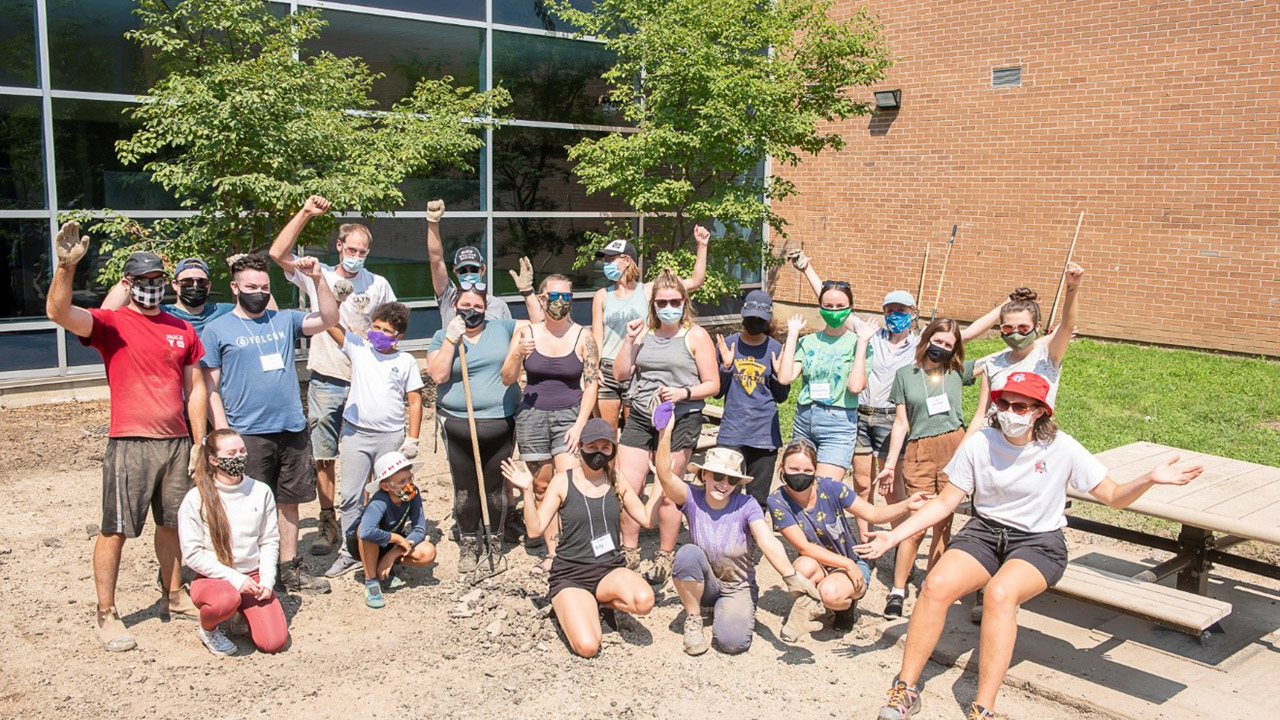Fanshawe goes green with Depave Paradise project
 CREDIT: FANSHAWE MEDIA SERVICES
CREDIT: FANSHAWE MEDIA SERVICESA group shot of volunteers and another of volunteer Christine Mettler (an employee with Green Communities Canada).
Recently, Fanshawe College partnered with the London Environmental Network and a non-profit agency, Depave Paradise to implement the Depave Paradise project on campus. The Depave Paradise project helps prevent pollution, create heat sinks, and more, all from removing unused pavement and replacing it with greenery.
“The idea is that there is a lot of impermeable covering in our society, every street, side-walk, driveway, parking lot, all the places where we have buildings and manufacturing plants, they all stop the water from getting into the ground,” Associate Dean of the Donald J. Smith School of Building Technology at Fanshawe College, Steve Crema said.
The project is volunteer-based and hopes to connect local residents within the community, giving them a sense of ownership, inspiration, and the ability to educate the public. Areas with unused pavement that span around 100 meters squared or more, along with publicly accessible property are a few ideal factors that are suitable for the project.
“So, we have to build and manage the storm water and rainwater, which is damaging to the environment,” added Crema. “A lot of the times we have excess amount of asphalt and paving. For example, when malls go out of business, the Depave movement is looking for opportunities to remove that unused asphalt or paving or driveways, parking lots, and return it to a more natural environment.”
Aside from the environmental benefits, some of the final projects became rain gardens, edible gardens, sensory gardens, naturalization, planting of trees, and green playgrounds.
“We allow it to produce plants, trees, flowers, and help us manage the water. So, instead of the entire parking lot having to be drained into the sewer, we have areas of green space, grass, trees, flower beds and gardens that will absorb the rain,” said Crema.
The Depave Paradise agency has multiple resources and tools and detailed trainings. It also organizes events to help attain public and media engagement, and a national peer learning network of Depave Paradise coordinators. The agency also expects a site host for each of their projects. A site host is an organization or group which hosts a Depave Paradise event on their property. At Fanshawe College, the site host was the London Environmental Network.
“The national, not for profit agency, Depave Paradise, they work with local environmental groups, including the London Environmental Network here in London, as well as other cities in Ontario and across the country,” said Crema. “The London Environmental Network finds places, institutions, hospitals, manufacturing plants, and whatever they can find, who are willing to, you know, let’s say donate part of the space on their property that is no longer needed to have asphalted. Then, we get funding and do some donations and some volunteers, and it becomes a multi-pronged partnership.
“So, Depave Paradise is a national group that contact London Environmental Network, who reached out to see if Fanshawe had an opportunity to give up some of our concrete space for this project,” said Crema.
Crema also added that the third partner, majority of the group of volunteers, were from MTE Consultants, a company which is partnered with Fanshawe, and has completed several renovations on-campus. They are also a part of the permanent advisory committees for several programs in the school of building technology at Fanshawe.
















